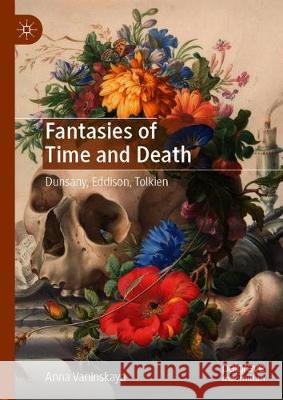Fantasies of Time and Death: Dunsany, Eddison, Tolkien » książka
topmenu
Fantasies of Time and Death: Dunsany, Eddison, Tolkien
ISBN-13: 9781137518378 / Angielski / Twarda / 2020 / 262 str.
Kategorie:
Wydawca:
Palgrave MacMillan
Język:
Angielski
ISBN-13:
9781137518378
Rok wydania:
2020
Wydanie:
2020
Ilość stron:
262
Waga:
0.45 kg
Wymiary:
21.08 x 15.49 x 2.29
Oprawa:
Twarda
Wolumenów:
01
Dodatkowe informacje:
Wydanie ilustrowane











